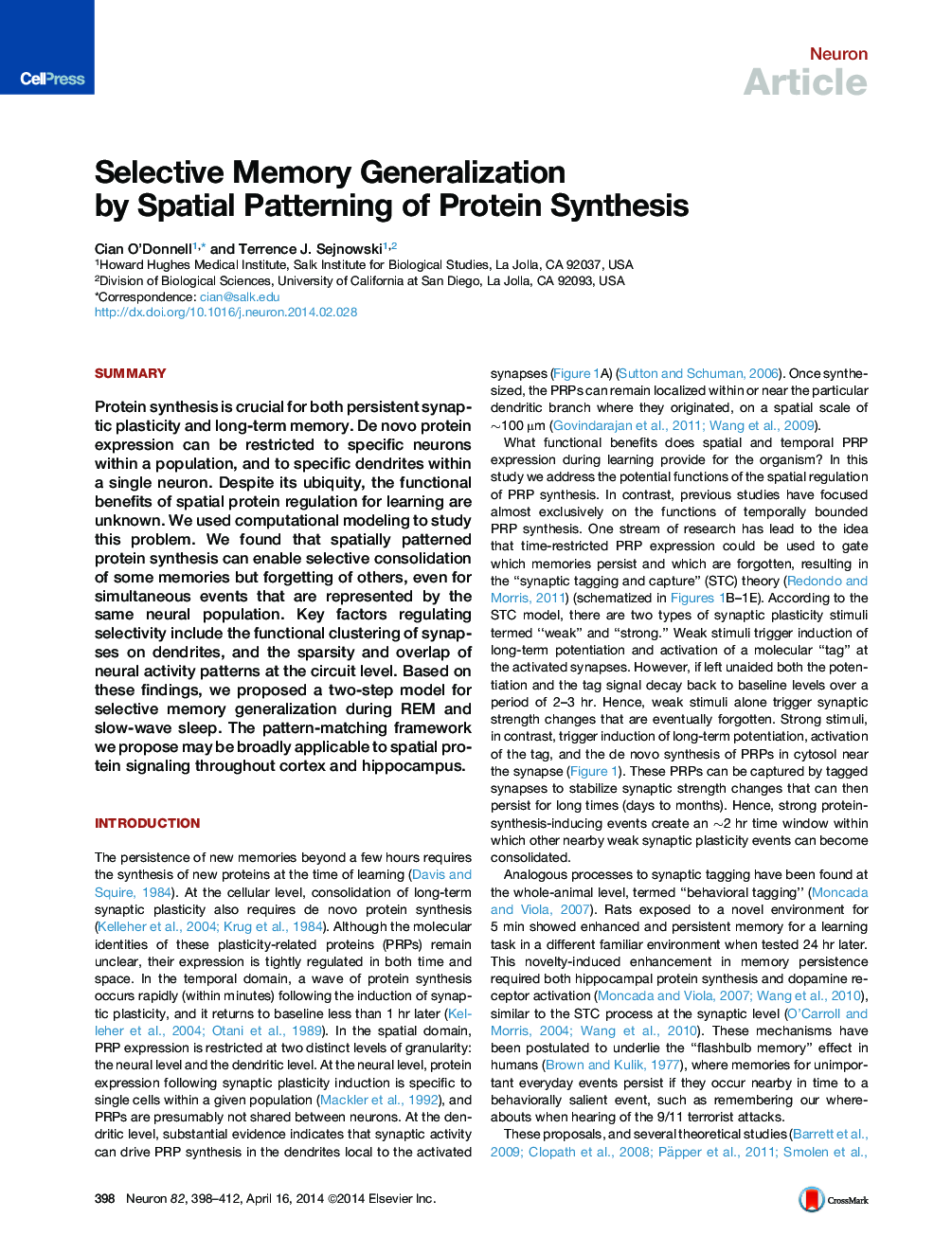| Article ID | Journal | Published Year | Pages | File Type |
|---|---|---|---|---|
| 4321137 | Neuron | 2014 | 15 Pages |
•Spatially localized protein synthesis allows selective memory consolidation•Selectivity depends on clustering of synapses on dendrites at single neuron level•Selectivity also depends on overlap of neural activity patterns at circuit level•Mechanism could enable generalization of learned knowledge during sleep
SummaryProtein synthesis is crucial for both persistent synaptic plasticity and long-term memory. De novo protein expression can be restricted to specific neurons within a population, and to specific dendrites within a single neuron. Despite its ubiquity, the functional benefits of spatial protein regulation for learning are unknown. We used computational modeling to study this problem. We found that spatially patterned protein synthesis can enable selective consolidation of some memories but forgetting of others, even for simultaneous events that are represented by the same neural population. Key factors regulating selectivity include the functional clustering of synapses on dendrites, and the sparsity and overlap of neural activity patterns at the circuit level. Based on these findings, we proposed a two-step model for selective memory generalization during REM and slow-wave sleep. The pattern-matching framework we propose may be broadly applicable to spatial protein signaling throughout cortex and hippocampus.
